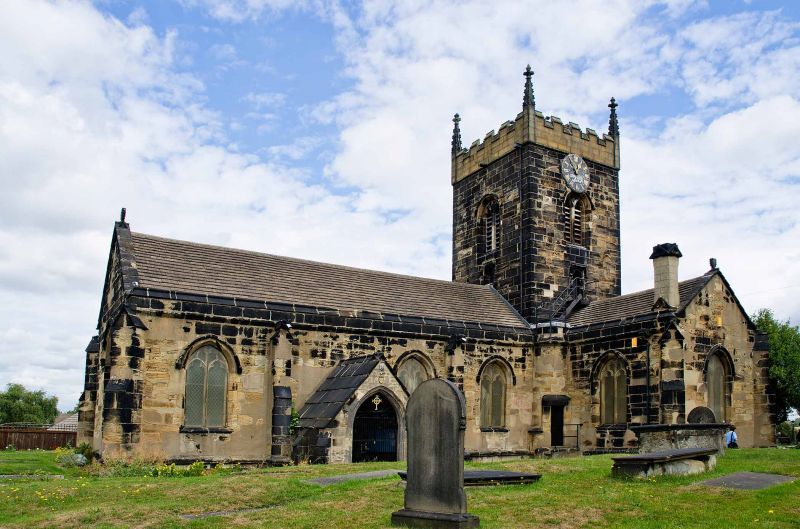Today, January 25th, is the 591st anniversary of the death of Bishop Richard Fleming, the subject of my thesis research.
Fleming was born at the village of Crofton, which lies just south east of Wakefield, and looks westward up the Calder valley. Politically however in the lifetime of Fleming it looked eastward to Pontefract as it formed part of the Honour centred on the castle there, and which was an important component of the estates of the Duchy of Lancaster. It was through that set of connections that Fleming made the connections that helped carry him to the episcopate.
Rather as men successful in politics in the later sixteenth century built grand country houses in or near the villages or towns in which they were born so fifteenth century bishops tended to rebuild, extend or augment the parish churches of their home villages. Thus Bishop Walter Skirlaw of Durham rebuilt the church at Skirlaugh in the East Riding, Bishop Nicholas Bubwith of Bath and Wells built the tower of the church at Bubwith in the same Riding, Bishop William Waynfleet of Winchester established a school in his home village of Wainfleet in Lincolnshire, Archbishop Henry Chichele of Canterbury established a collegiate foundation at his home parish of Higham Ferrers in Northamptonshire, Archbishop John Kempe of York did the same in his home parish of Wye in Kent, and Archbishop Thomas Rotherham did the same in his eponymous hometown. Bishop John Alcock of Ely founded a grammar school in his home city of Kingston-upon-Hull. Skirlaw, Waynfleet, Chichele, Rotherham and Alcock were all founders or benefactors of colleges in Oxford or Cambridge. Richard Fleming was similar - not only did he found Lincoln College in Oxford and attempt to turn his previous parish church at Boston into a collegiate foundation but he also rebuilt the church in his home parish of Crofton.

Crofton Church from the south west
Image: britishlistedbuildings.co.uk
A local tale claims that he moved the church site from a low lying position to the present one, but this I think unlikely. This is because the church has the remains of two Anglo-Saxon crosses - presumably found in the walls of the church during the nineteenth century restoration - and current opinion would suggest the tower arches date from about 1300. This would suggest Fleming’s rebuilding was carried out around a pre-existing structure.
His coat of arms is over the porch entrance and in the early seventeenth century the indefatigable Yorkshire antiquary Roger Dodsworth recorded a panel of glass - now alas list - which showed Fleming preaching ( he was a distinguished preacher ) and recorded him as the rebuilder and consecrator of the church.
The unaisled cruciform church is simple in plan and any original fittings, other than probably the font, have long gone. Nonetheless this is a link to a famous son of the village. It is also a witness to Fleming’s commitment to his home. If we date the work at Crofton to his second period as Bishop of Lincoln, from 1426 until his death in 1431 this was when he was founding Lincoln College and trying to create the collegiate community at Boston, when his finances were certainly straightened. Crofton church may not be an elaborate structure, but the fact that it was rebuilt at all by Fleming is a sign of his filial devotion to his parish, his village and his family.


No comments:
Post a Comment